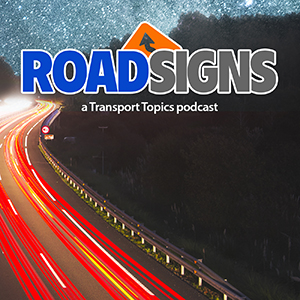Staff Reporter
FMCSA Grants Pyrotechnics Group ELD Exemption

The Federal Motor Carrier Safety Administration has granted certain members of the American Pyrotechnics Association reprieve from the electronic logging device rule.
APA represents the fireworks industry, including display professionals, retailers, manufacturers and distributors. According to a document published in the Federal Register on Feb. 19, APA member companies who hold an exemption to the 14-hour limit during the Independence Day season may continue to use paper logs to record hours of service. The 14-hour rule dictates that drivers may not drive beyond the 14th consecutive hour after coming on duty after a period of 10 hours off duty.
Pyrotechnics 2019 02661 by on Scribd
The exemption will be in effect during the Independence Day season, which runs June 28-July 8. The exemption is effective during this window in 2019 and 2020. Various APA members have held two-year exemptions during the Independence Day period over the past decade.
The trade association maintains that continuing to allow paper logs for this subset of haulers during a limited period would not impact operational safety. APA members rely on intermittent drivers periodically throughout the year. The industry leases 90% of its vehicles, including straight trucks, pickup trucks and cargo vans, for less than 30 days at a time. The days surrounding the Fourth of July are busiest, as approximately 16,000 professional shows occur during this time.

In our season 2 second episode of RoadSigns, we ask: What does the future hold for ELDs? Hear a snippet from Norm Ellis, president of EROAD, above, and get the full program by going to RoadSigns.TTNews.com.
“Due to the unique nature of the fireworks industry, requiring the use of ELDs for this limited seasonal delivery period would impose a substantial financial burden on members because it would require them to purchase [or] lease ELD systems for use for only a short period every year,” the Federal Register document states.
Prior to granting the exemption, FMCSA ensured that each APA member holding an exemption from the 14-hour rule possessed valid registration and insurance and was not subject to any “imminent hazard” orders.
“The FMCSA does not believe the motor carriers and drivers covered by this exemption will experience any deterioration of their safety record,” the document states. “However, should this occur, FMCSA will take all steps necessary to protect the public interest, including revocation of the exemption.”
FMCSA received 27 comments after publishing a notice of APA’s exemption application April 24, 2018. Some 21 of the comments, including one from the Owner-Operator Independent Drivers Association, supported the exemption. Five comments, including input from the Advocates for Highway and Auto Safety, opposed it. One comment took no position on the exemption.
“The application fails to consider practical alternatives, justify the need for the exemption, provide an analysis of the safety impacts the requested exemption may cause and provide information on the specific countermeasures to be undertaken to ensure that the exemption will achieve an equivalent or greater level of safety than would be achieved absent the exemption,” the Advocates group stated in its comment.
APA is just the latest trade association that has been granted an exemption by FMCSA. The agency granted the American Concrete Pavement Association exemption from two HOS rules Feb. 6. It also granted a similar exemption to Waste Management Holdings Inc. on Oct. 25.




